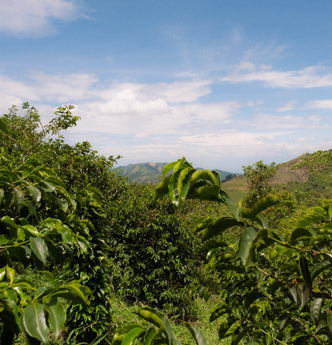Spotlight.
People, planet, and profit.
April 07, 2020
Written by Watch House



Brodie Roberts | Head Barista Spitalfields
“Meeting the needs of the present without compromising the ability of future generations to meet their own needs.” - United Nations documents
We love coffee, and it’s no secret. It’s the reason we get up every morning. That coffee has traveled many miles to get to your cup. Have you ever thought about the journey it takes?
The word ‘sustainability’ is thrown around so much these days that we tend to lose sight of the objective. Sustainability encompasses a broad array of topics, which, until clearly defined, may seem intangible and difficult to address. For now, we will try and keep it simple. If we do not start to care more about our choices and make changes the industry itself will collapse.
From bean to brew, the coffee value chain is made up of the four main phases: Cultivation, Processing, Roasting, and Consumption. Each phase in the process has environmental, social and economic issues that affect the future sustainability of the coffee industry.
When we talk about sustainability in coffee we focus on what is known as the triple bottom line: people, planet, and profit.
People.
Producing coffee is backbreaking work for the little financial rewards farmers receive at the bottom of the chain. The current Coffee Price Crisis has made a bold presence in the media and pushes for policy discussion. In May 2019, coffee prices fell to their lowest point on the C Market in over a decade at $0.88 (£0.70) per pound. Unstable coffee prices have a direct impact on access to education, housing, food, healthcare, and other basic necessities. The welfare of smallholders is a growing concern, who are at higher risk for the collapse as many have limited access to technology, resources and industry-specific education.
Equality is a core value of our industry, but gender inequality exists within it. Research shows that overall, women earn less income, own less land, control fewer assets, and have less access to credit and market information with greater difficulty obtaining agricultural inputs, with fewer training and leadership opportunities. Much of this is due to deeply rooted social biases that create numerous disadvantages for women compared to men. To see the industry continue to grow, fair and equal treatment at all levels of the supply chain will increase the longevity of our global coffee industry for years to come.
Planet.
Climate change is hitting coffee farmers particularly hard. Precipitation is more volatile, drought and flooding are both more widespread, and rising temperatures are causing farmers to move higher up the mountains. By doing so more forests are being damaged which in return is negatively impacting the atmosphere.
One of the main problems for some regions is water pollution produced through the past practices of wet processing. With technological developments, there are solutions in place to aid the change in environmental impact. However, access to resources limits the ability to control and change the issue.
Coffee consumers also have a role to play. Both disposable cups and single-use coffee pods are difficult to recycle and create a high waste volume. Reducing the waste we produce is a big step in helping the earth, but the issue goes beyond that. By reducing our CO2 footprint and educating ourselves on the choices we make can have a strong impact all the way down the supply chain.
Profit.
The economic sustainability of the industry is strongly linked to the social sustainability of communities around the world. Coffee, like other agricultural goods, is a seasonal product requiring investments prior to harvest and revenue returns. Small farmers with low capital and savings frequently rely on credit to supply necessary harvest inputs and living expenses. Requirements associated with selling on international markets also present barriers for smaller producers. For example, the costs of an export license, with minimum volume and quality requirements can reduce the ability of producers to earn a fair income for their work.
It isn’t just about what we want to buy and how much we pay, or how much we “help,” but also about what makes coffee a worthwhile activity for a farmer to pursue. If we are going to understand what sustainability means for the economy or pursue strategies that promote things the producers value, then we have to understand what “meaningful economic benefit” means, and we need the farmer's perspective for that. Building lasting relationships with producers of great coffee requires an extension of direct trade and in return allowing complete transparency.
For a consumer-ready coffee to be sustainable, all of the practices along the supply chain should be taken into account, not just what happens at the origin. Both the Sustainable Coffee Institute and the Specialty Coffee Association are organisations doing fantastic work to drive conversation and actively promote sustainability awareness within the coffee industry on a global scale. But while this is a good start, as an industry, we cannot afford to rest on our laurels.
Exceptional coffee starts with exceptional commitment.


